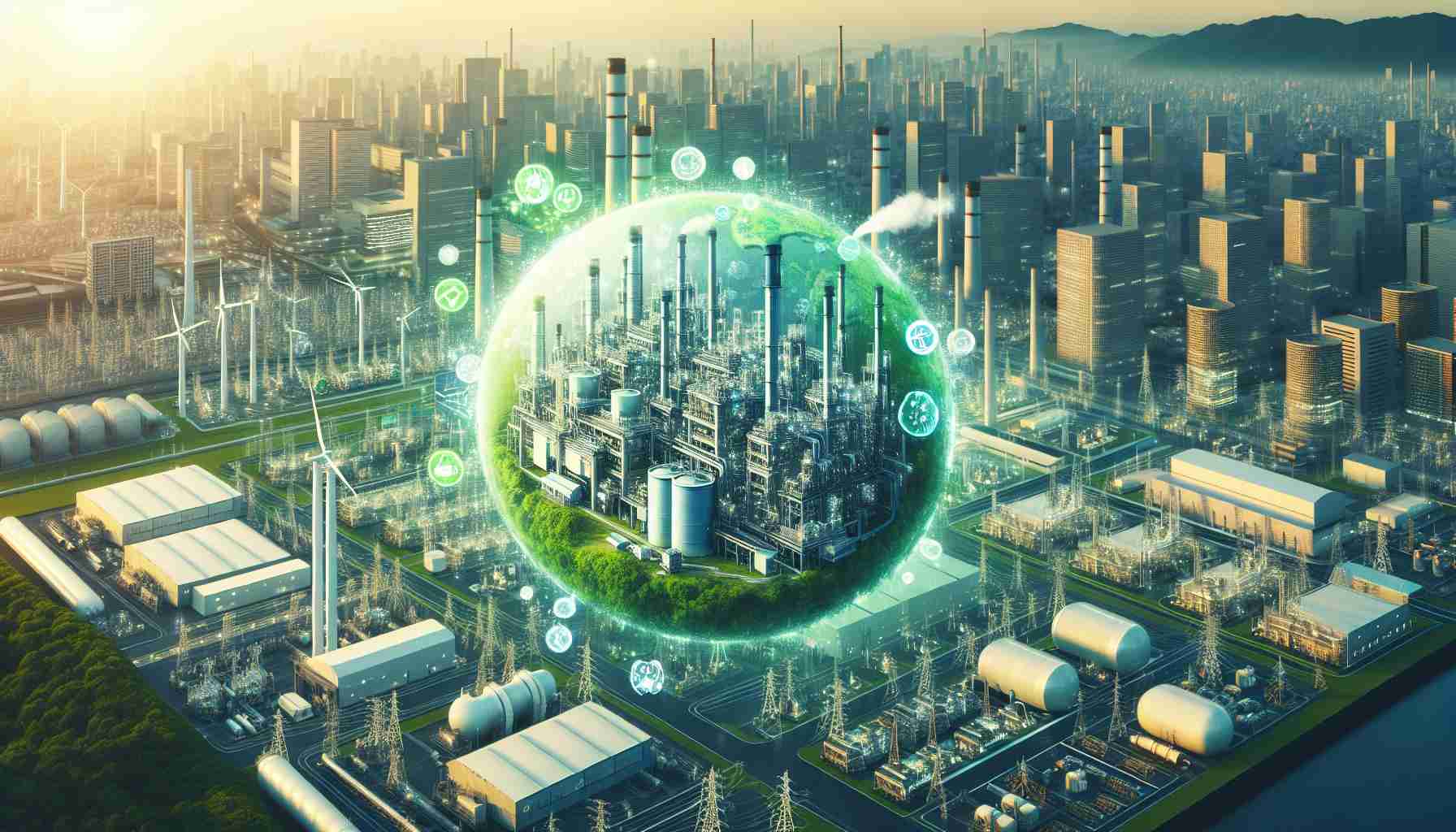Asahi Kasei, a pioneering technology firm from Japan, is set to play a pivotal role in the country’s green hydrogen future, thanks to substantial government support. The company has recently received a whopping ¥11.4 billion (approximately $74 million) to enhance its manufacturing capabilities. This financial boost is part of Japan’s Green Transformation (GX) initiative aimed at achieving carbon neutrality by 2050.
Asahi Kasei plans to erect new facilities in Kawasaki, targeting an ambitious output of 2 GW (gigawatts) of electrolyser components each year by 2028. With the ongoing expansion, combined with existing operations, the company is on track to produce over 3 GW annually. A significant portion of this funding will also focus on advancing alkaline water electrolysis technologies.
Industry leaders from Asahi Kasei are eyeing the global hydrogen market, aiming to capture 20% of market share in Europe, North America, and India by 2030. They recognize the challenges that lie ahead, notably the high production costs and variable renewable energy sources essential for green hydrogen.
Japan is ramping up its commitment to green hydrogen, leveraging its extensive industry experience to reduce fossil fuel reliance. With the global green hydrogen market expected to soar from $4.02 billion in 2022 to an astounding $50.3 billion by 2030, Japan is positioning itself as a leader in this emerging economic landscape, driven by innovative technologies and forward-thinking investments.
Green Hydrogen: A Catalyst for Global Economic and Environmental Change
The push for green hydrogen development, exemplified by Asahi Kasei’s initiatives, extends far beyond corporate profits. This transformative sector has the potential to redefine energy systems worldwide, significantly impacting society, culture, and the global economy. As nations like Japan embrace hydrogen technologies, they foster new energy paradigms that could lessen reliance on volatile fossil fuel markets and create sustainable job opportunities, especially in engineering and manufacturing sectors.
Culturally, the green transition could spark a shift in public perception about energy consumption. As communities become increasingly aware of their carbon footprints, the demand for cleaner energy solutions will likely rise. This shift not only promotes ecological awareness but could also cultivate a new national identity centered around sustainability and innovation.
On an environmental front, green hydrogen promises to reduce greenhouse gas emissions significantly. As its adoption spreads, the use of renewable energy sources for hydrogen production can help mitigate climate change effects, contributing to global sustainability goals. This trajectory aligns with predictions from the International Renewable Energy Agency, which suggest that hydrogen could account for up to 24% of the world’s energy needs by 2030, fostering a cleaner environment.
Looking ahead, as technological advancements continue and production costs diminish, investment in green hydrogen infrastructure may become not just beneficial but essential for future energy security. Japan’s early commitment positions it to lead in a market anticipated to surge more than tenfold within the decade, profoundly influencing the course of global energy dynamics.
Asahi Kasei: Leading the Charge in Japan’s Green Hydrogen Revolution
Japan is on the verge of a significant transformation in its energy sector, with Asahi Kasei emerging as a key player in the nation’s green hydrogen initiative. With a sizable investment backing from the government, totaling ¥11.4 billion (about $74 million), Asahi Kasei is poised to amplify its manufacturing capabilities as part of Japan’s Green Transformation (GX) strategy, which aims for carbon neutrality by 2050.
Highlights of Asahi Kasei’s Green Hydrogen Plans
Asahi Kasei’s ambitious plans include the construction of new facilities in Kawasaki, with a target production of 2 GW (gigawatts) of electrolyser components annually by 2028. When combined with existing operations, this effort positions the company to exceed a total output of over 3 GW per year. A substantial portion of the recent funding will be dedicated to advancing alkaline water electrolysis technologies, which are crucial for generating green hydrogen efficiently.
Global Market Aspirations
The company is not just focused on the domestic market; industry leaders at Asahi Kasei are targeting a formidable goal to capture 20% of the global hydrogen market share in key regions such as Europe, North America, and India by 2030. However, they acknowledge significant challenges ahead, particularly concerning the high costs associated with production and the reliance on variable renewable energy sources vital for green hydrogen production.
Industry Trends and Innovations
The global green hydrogen market is projected to grow exponentially, from a valuation of $4.02 billion in 2022 to a staggering $50.3 billion by 2030. This surge indicates a robust demand for green hydrogen as nations strive to decarbonize and transition away from fossil fuels. Japan, with its extensive industrial know-how and commitment to innovative technologies, is strategically positioning itself at the forefront of this burgeoning market.
Pros and Cons of Green Hydrogen
Pros:
– Environmentally friendly: Green hydrogen is produced using renewable energy, resulting in minimal carbon emissions.
– Diverse applications: It can be used in various sectors, including transportation, industrial processes, and energy storage.
– Economic potential: As the market expands, it opens new job opportunities and promotes technological advancements.
Cons:
– High production costs: Currently, the production of green hydrogen remains more expensive compared to fossil fuel alternatives.
– Infrastructure challenges: Developing the necessary infrastructure for hydrogen production and distribution requires significant investment and time.
Future Predictions
As Japan advances its green hydrogen initiatives, Asahi Kasei is likely to play a pivotal role in shaping the future of the industry. Innovations in electrolysis technologies and strategic partnerships will be essential for overcoming existing barriers, including cost efficiency and sustainable large-scale production.
For more insights into Japan’s green energy strategies, explore the comprehensive resources at Japan Gov.
As Asahi Kasei and the broader Japanese industry embrace this green transition, the implications for global renewable energy markets are profound, promising a cleaner, more sustainable future.


